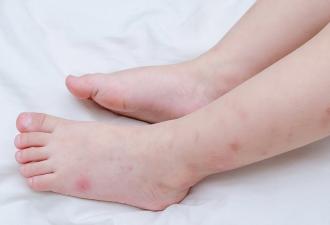
Flu: Symptoms, Management, and Vaccination
What is Influenza (Flu) ?
Influenza is a viral infection of the respiratory system caused primarily by the influenza viruses type A or B. In Greece, seasonal influenza activity typically begins to rise in January and peaks in February and March.
Transmission
- Primary mode: Through respiratory droplets released when an infected person coughs, sneezes or breathes.
- Secondary mode: Contact with surfaces contaminated by viral droplets, followed by touching the face (eyes, nose, mouth).
The contagious period starts one day before symptoms appear and lasts up to seven days after symptom onset.
Symptoms
- Common symptoms: High fever, headache, cough, nasal congestion, fatigue, muscle pain, and joint pain.
- Other symptoms: Diarrhea, vomiting or abdominal pain may occur.
- Complications: Bronchitis, pneumonia or severe disease that can be life-threatening, especially in high-risk groups.
High-risk groups include: Individuals with chronic conditions, immunosuppression, or pregnant women.
Management
- Treatment is symptomatic, aimed at relieving symptoms:
- Rest, adequate hydration, and balanced nutrition are recommended.
- Antibiotics are not prescribed unless a secondary bacterial infection occurs.
- Antiviral medications may be given in specific cases upon the doctor’s recommendation.
Prevention through Vaccination
The influenza vaccine is the best protection and is recommended annually, ideally at the beginning of the winter season.
For certain groups, vaccination is essential, while others should consult their doctor to decide if they need it.
- Annual dosage:
- Children under 9 years old:
- If vaccinated for the first time or have previously received only one dose, they require two doses at least one month apart.
- Infants over 6 months old:
- The full vaccine dose is given if deemed necessary.
- Infants under 6 months:
- Not vaccinated.
- Children under 9 years old:
High-Risk Groups for Vaccination
The National Vaccination Program of Greece highlights the following high-risk groups for whom vaccination is necessary:
- Healthcare workers, including medical and nursing staff.
- Individuals aged 60 years and older.
- Children (6 months and older) and adults with:
- Asthma or chronic respiratory diseases.
- Heart disease with significant hemodynamic impact.
- Immunosuppression (genetic or acquired).
- Organ transplantation.
- Sickle cell anemia or other hemoglobinopathies.
- Diabetes or other chronic metabolic diseases.
- Chronic kidney disease.
- Pregnant women, regardless of gestational age, postpartum women and breastfeeding mothers.
- Individuals in close contact with:
- Infants under 6 months.
- Individuals with underlying health conditions that increase the risk of complications.
- Closed populations, such as:
- Staff and residents of institutions.
- Boarding schools, military or police academies, and similar settings.
Note: This article provides general information. Always consult your paediatrician for personalized advice.
Written by Paediatrician Katerina Katsibardi, MP, PhD











